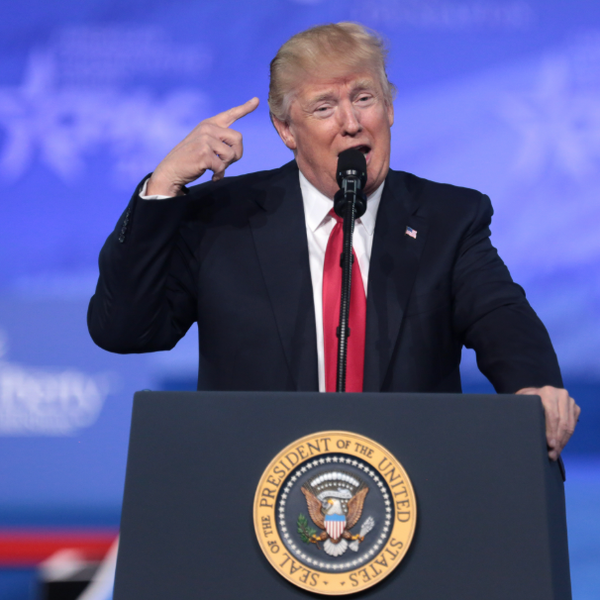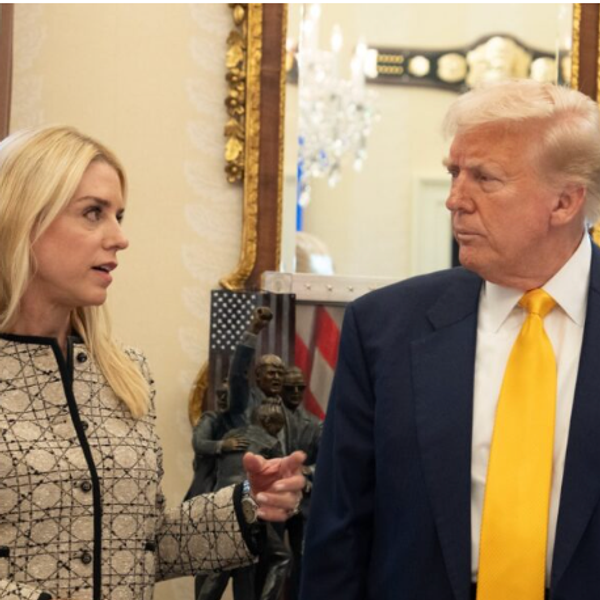
Reprinted with permission from Creators.
It’s not Richard Nixon’s opening to China. It’s not Neville Chamberlain’s journey to Munich. But President Donald Trump’s announcement that he’s willing to meet with North Korean leader Kim Jong Un is one of those decisions that could produce important results, good or bad.
The administration portrays this as a triumph for Trump’s tough approach, which has allegedly forced the enemy to the negotiating table. But one-on-one negotiations are something North Korea has offered before.
Barack Obama declined an invitation. George W. Bush rejected the idea even though the Pyongyang regime, then under Kim Jong Il, said it was ready to discuss giving up its nuclear arsenal.
The U.S. has always seen this gambit as an attempt by the North to gain equal status with the world’s pre-eminent superpower and to separate us from our allies in the region. Kim Jong Il, said Secretary of State Condoleezza Rice in 2006, preferred bargaining solely with Washington because he didn’t “want to face the pressure of other states that have leverage.”
Trump has essentially taken the offer that Bush and Rice thought was too accommodating. Bill Clinton tried direct bilateral talks, which yielded an agreement for North Korea to give up its nuclear facilities and the possibility of developing nuclear weapons. That accord, however, eventually collapsed.
South Korea and Japan have to worry that not being at the table, they will be on the menu. Trump, after all, has shown little interest in upholding alliances, and he fulminates about spending so much to defend other countries. It’s not hard to imagine his making concessions that would leave South Korea and Japan vulnerable. “America First,” right?
The concerns are magnified by the shortage of expertise on the U.S. side. Trump has yet to even nominate an ambassador to South Korea, and the State Department’s special envoy for North Korea just retired. Our diplomats also have very little time to prepare for a meeting whose consequences could be enormous.
It would be a great understatement to say Trump has no demonstrated grasp of the complex issues involved in trying to forge a deal with North Korea. Before going to China, Nixon was a serious student of foreign policy, and he entrusted the groundwork to his formidable national security adviser, Henry Kissinger. Trump’s short attention span, impulsive nature and taste for self-promotion are grounds to wonder whether he can handle these talks without losing his shirt or starting a war.
Kim, meanwhile, gains just from sitting down with the most powerful person on the planet. All he had to do in return was to say he would stop testing nuclear weapons and missiles and consider full denuclearization. Had Obama agreed to such a session on these lax terms, he would have been vilified as an appeaser.
Maybe Kim can be coaxed or coerced into giving up his entire nuclear arsenal — which the Trump administration has repeatedly said is the only outcome it will accept. But it’s hard to imagine what Trump could offer that would bring about this capitulation.
Saddam Hussein, who lacked nukes, was toppled by a U.S. invasion after Iraq was placed on Bush’s “axis of evil.” The Pyongyang regime, which had them, was left alone. Kim knows the bomb is his best insurance against a U.S. attempt at forcible regime change. If Trump demands all or nothing, he’ll probably get nothing.
But if he’s willing to settle for great progress instead, he may succeed. Kim doesn’t need hundreds or even dozens of nuclear warheads to deter an attack. Nor does he need to test more intercontinental ballistic missiles.
Just as the Soviet Union agreed to downsize its stockpile to get parallel U.S. cuts, North Korea might settle for strict arms limits if we would provide meaningful security guarantees, scrap economic sanctions, reduce our troop strength or normalize relations.
The implications of this summit go beyond the Far East. The government in Tehran is bound to realize something Trump may not: He can’t hope to reach a nuclear deal with North Korea if he tears up the one with Iran. Trump has to show he is prepared to abide by agreements even if they fall short of perfection. Walking away would confirm that U.S. commitments are empty words.
Whether he has any idea what he’s gotten himself into is open to question. Trump has conducted his presidency like a TV reality show. But things are about to get real.
Steve Chapman blogs at http://www.chicagotribune.com/news/opinion/chapman. Follow him on Twitter @SteveChapman13 or at https://www.facebook.com/stevechapman13. To find out more about Steve Chapman and read features by other Creators Syndicate writers and cartoonists, visit the Creators Syndicate website at www.creators.com.








